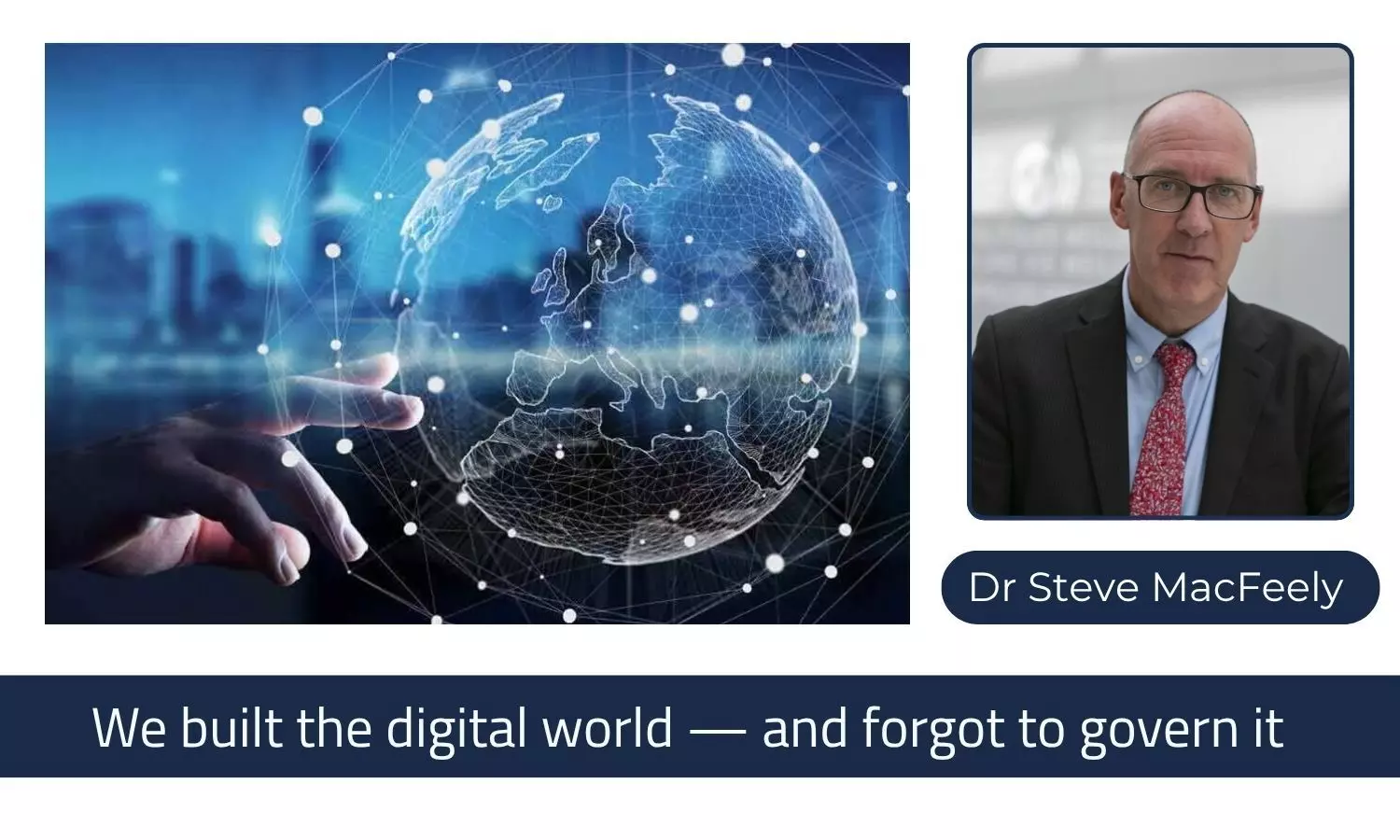In the Digital Age, Data Is Power - And We're Losing It - Dr Steve MacFeely
- byDoctor News Daily Team
- 11 October, 2025
- 0 Comments
- 0 Mins

The data world has transformed, almost beyond recognition, over the past 30 or 40 years. In no small measure, this transformation has been driven by the digital and ICT revolutions. These revolutions have produced a deluge of by-product of digital data. These changes have been relentless and rapid, leaving many decision makers feeling overwhelmed. A consequence is that many senior decision makers do not appear to understand the quickly evolving digital world we inhabit. A simple illustration speaks volumes – as governments around the world outsource public services to the private sector, they do not explicitly address data ownership in the contracts, surrendering a most valuable asset - data. Later these valuable administrative data must be purchased back by governments to replace the data they held originally. Equally, we hear continual references to digital and AI governance, but with no serious thought given to the quality and governance of the underlying data. Digital data require infrastructure, similar to more traditional resources (think oil, coal, gas…). Data too must be extracted, cleaned, stored, transported, secured and disseminated. The design of efficient infrastructure will not happen by accident but will require deliberate and careful architectural planning. Put another way, good quality data will not fall out of the sky by magic or for free – they require resources and intentional design. Health infrastructure must facilitate a break away from the traditional ‘Health Information System’ silo, that treats health as a closed system, to an open ‘Information Systems for Health’ that links health data to both health determinants and outcomes. In practice, this means being able to link data from health, education, economy, environment and so forth. Data linking implies data sharing. For example, patient held digital medical records will require quite sophisticated data governance. Clear legal and technical protocols must be put in place if data are to be shared, especially if those data are personally identifiable (PIIs). A minimal requirement is that privacy is protected. If those data are moving between jurisdictions an international data governance framework is required. Today, data are at the heart of almost every activity, a ubiquitous globalized resource, easily shared, duplicated, traded and exchanged. Data transcend borders, challenge national sovereignty and are increasingly being thought of as a new form of capital. Data are central to modern communications, government, social media, the cloud, blockchain, the internet of things, crypto and artificial intelligence. Governments who do not take data, data infrastructure and data governance seriously will fail to protect their citizens and prepare their countries for the digital age. Disclaimer: The views expressed in this article are of the author and not of . The Editorial/Content team of has not contributed to the writing/editing/packaging of this article.
Disclaimer: This website is designed for healthcare professionals and serves solely for informational purposes.
The content provided should not be interpreted as medical advice, diagnosis, treatment recommendations, prescriptions, or endorsements of specific medical practices. It is not a replacement for professional medical consultation or the expertise of a licensed healthcare provider.
Given the ever-evolving nature of medical science, we strive to keep our information accurate and up to date. However, we do not guarantee the completeness or accuracy of the content.
If you come across any inconsistencies, please reach out to us at
admin@doctornewsdaily.com.
We do not support or endorse medical opinions, treatments, or recommendations that contradict the advice of qualified healthcare professionals.
By using this website, you agree to our
Terms of Use,
Privacy Policy, and
Advertisement Policy.
For further details, please review our
Full Disclaimer.
Recent News
Lower ketone levels and improved exercise capacity...
- 01 November, 2025
Citrus Flavonoids effective nutritional adjunct to...
- 01 November, 2025
Daily kimchi intake linked to reduced BMI and bell...
- 01 November, 2025
Daily Newsletter
Get all the top stories from Blogs to keep track.


0 Comments
Post a comment
No comments yet. Be the first to comment!